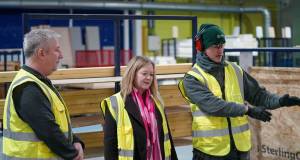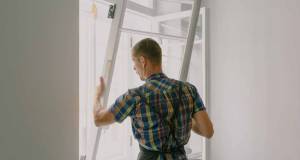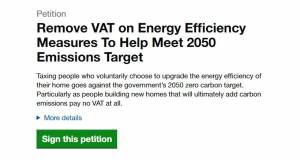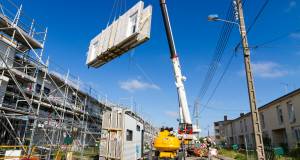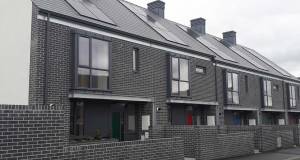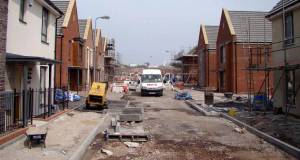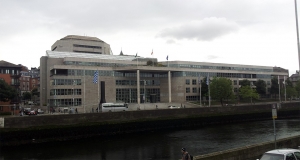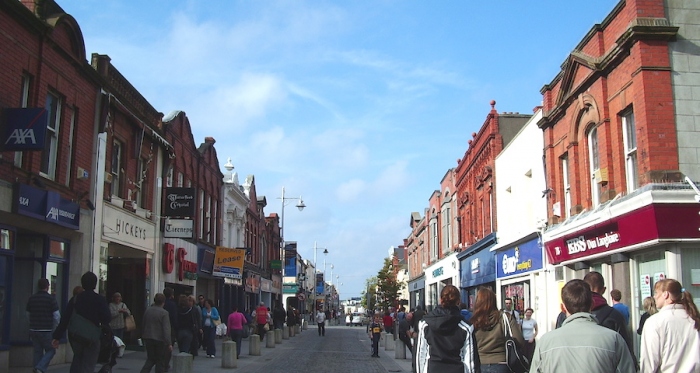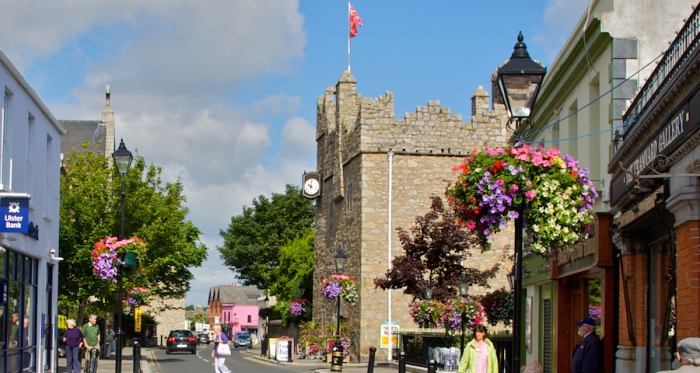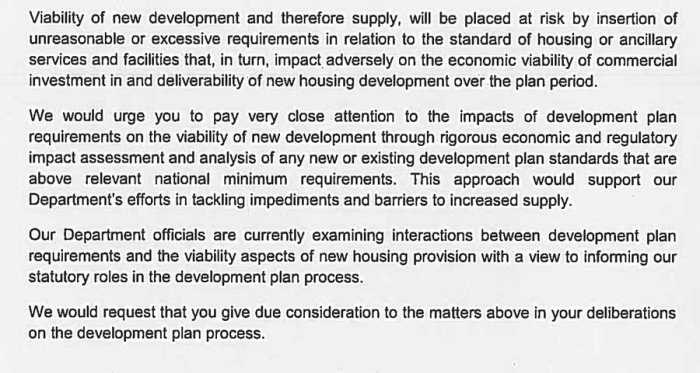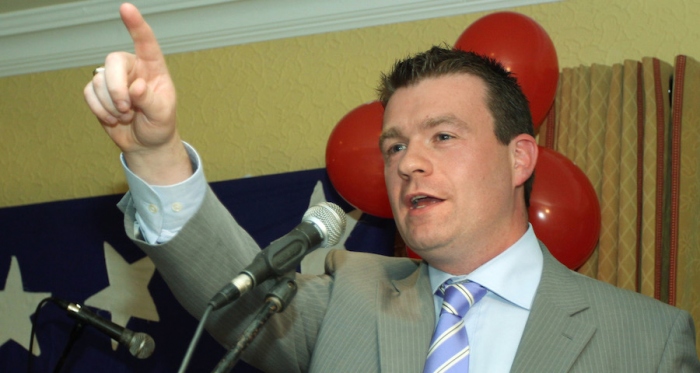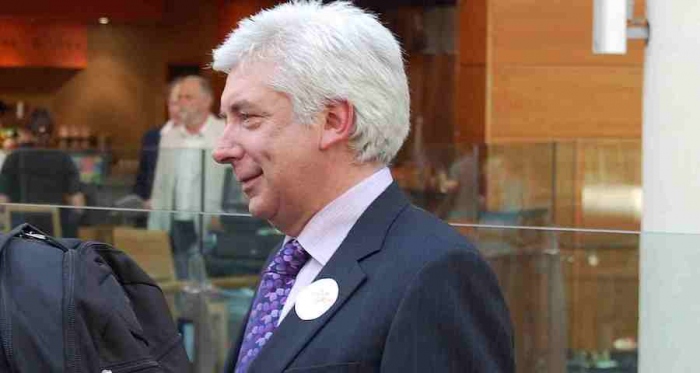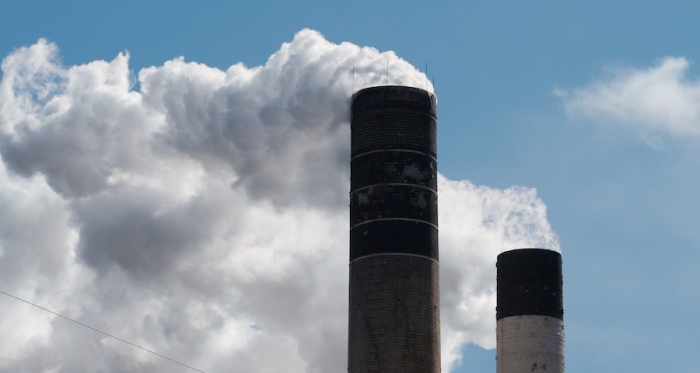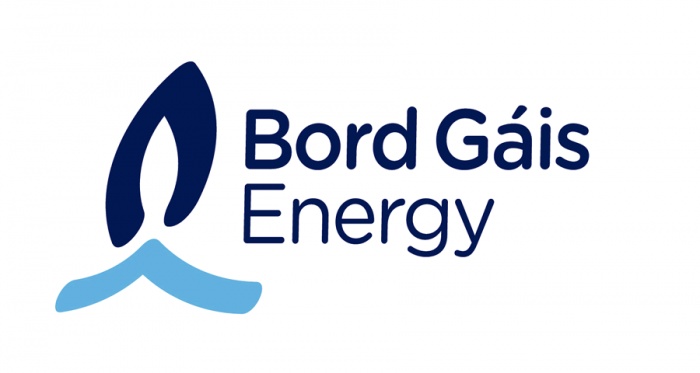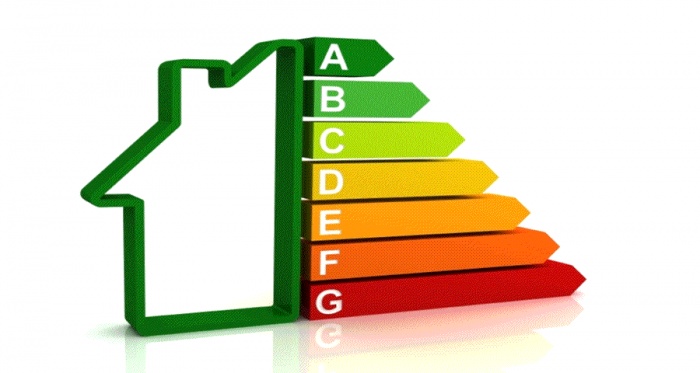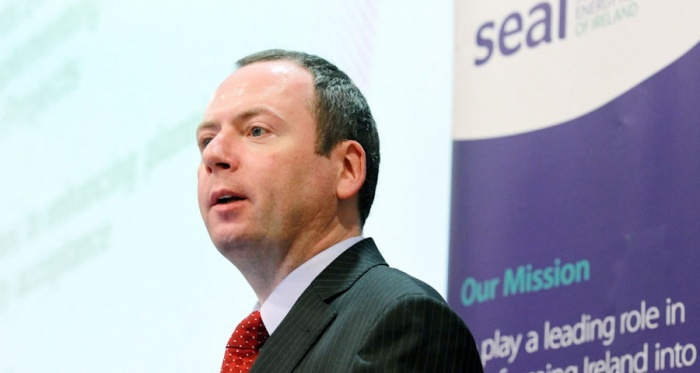GOVERNMENT - passivehouseplus.ie
Chartered Institute of Building urges VAT overhaul to encourage reuse and renovation
WorldGBC launches green building policy principles for governments
Climate action plan sets embodied carbon targets for construction
Ireland’s new climate action plan, which was published on Thursday 4 November, contains the country’s first official targets for limiting the embodied carbon of construction materials.
New drive to cut VAT on MVHR systems
A new campaign is aiming to encourage more sustainable property refurbishment through tax incentives for people to adopt passive, or near passive, building standards.
Programme for government aims for 500,000 retrofits
The proposed programme for government agreed by Fianna Fáil, Fine Gael and the Green Party contains a commitment to upgrade at least 500,000 homes to a B2 energy rating by 2030, among a series of commitments on the built environment.
Future Homes is “all talk no action” — George Clarke
Leading TV architect George Clarke has slammed plans for the government’s Future Homes Standard as “all talk no action” and being “too little and taking too much time”.
Cuckoos & magpies: state house-buying hits record
Recent headlines suggest first time buyers are being pushed out of the housing market by ‘non-household’ buyers, so-called ‘cuckoo’ funds. Official figures suggest that private companies are not the only competition in the new homes market – there may be a ‘magpie’ out there also.
Blind & shutter group calls for Part B changes
The British Blind & Shutter Association (BBSA) has challenged what it described as the defacto banning of shading on tall glass buildings in Part B of the building regulations, and is seeking a judicial review on several points, principally that the regulation is misconceived as it focusses on combustibility rather than flammability
Ireland's climate action plan: just business as usual?
The government's new climate action plan does not show the level of committment needed to really reduce Ireland's carbon emissions, says Irish Green Building Council CEO Pat Barry.
The Jodrell Bank grand challenge
During a speech last year Theresa May challenged the construction industry to halve the energy use of new buildings, and to halve the cost of retrofit. But we already know how to meet these challenges, writes Peter Rickaby, and much more difficult tasks lie ahead.
A housing boom without the houses?
There was much talk of jobless recovery as economies picked up after the last global recession. Mel Reynolds detects signs of an analogous proposition in the Irish property market: a housing boom that may be close to peaking without much in the way of housebuilding to report.
Current Irish housing policy is to not build housing
Even the most cursory examination of the figures shows how little housing the state is building, writes architect Mel Reynolds.
Government failing to act on radon in rented houses
Consultation on rental standards also criticised.
Dublin City Council officials defy councillors on passive house vote
Unelected officials in Dublin City Council have rejected the decision by city councillors to make the passive house standard or equivalent energy performance standards a mandatory planning condition for all new buildings in the city. The council also included a statement to protect the route of the controversial Eastern Bypass, in spite of councillors voting against it.
EU president sets passive precedent
Motivated by the experience of building and living in a passive house, one of Ireland’s leading political figures has become a public advocate for the standard. Passive House Plus visited the house to find out why.
Dún Laoghaire votes emphatically for passive house standard
Dún Laoghaire–Rathdown County Council has voted emphatically to make the passive house standard mandatory for new buildings. At a meeting on Tuesday night, councillors voted by 26 votes to 13 in support of putting the clause in the local authority’s development plan for 2016 to 2022.
Business leaders support Dún Laoghaire Rathdown passive house plan
Leading businesses in the building materials sector — including semi-state timber company Coillte and insulation manufacturer Kingspan — have declared their support for plans by Dún Laoghaire Rathdown County Council to make the passive house standard mandatory for new buildings.
Department of the Environment objects to higher housing standards
The Department of the Environment has written to Dublin’s local authorities warning against adopting higher quality housing standards – and threatened to overrule Dún Laoghaire-Rathdown’s proposal to mandate the passive house standard – in correspondence obtained by Passive House Plus magazine.
Government announces €1.5bn investment in social housing
The government has announced that it plans to invest over €1.5 billion in local authority housing up until the end of 2017.
Irish government increases energy efficiency grants
Irish minister for energy Alex White has announced a boost in the level of grants available to householders who want to undertake energy efficiency improvements. The cash value of every grant available to householders under the Better Energy Homes Scheme has been increased by between 25 to 50%. In addition, a bonus payment has been introduced which will see householders receive bonus payments if they complete three or more energy efficiency improvements.
Independent experts to make up Irish climate change committee
The Irish Department of Environment has confirmed to Passive House Plus that its proposed independent committee on climate change will be an expert rather than stakeholder group.
Bord Gáis calls it quits on home insulation business
Bord Gáis has ceased offering home insulation products and boiler installations through its Home Team division due to a drop off in demand. The company will continue to offer boiler servicing and repair.
The move reflects the recent nationwide decline in home energy upgrades, a trend that is investigated in the new issue of Construct Ireland.
Two thirds of new Irish homes fail energy efficiency rules
Less than a third of new Irish homes meet energy efficiency and carbon emissions regulations, according to new figures. The number of new homes meeting the rules has also declined dramatically since 2005, according to data released by the Sustainable Energy Authority of Ireland.
Brian Motherway named new chief executive of SEAI
Dr Brian Motherway has been appointed chief executive officer of the Sustainable Energy Authority of Ireland (SEAI). Motherway joined SEAI in 2006 and has recently held the role of chief operations officer. He holds bachelor and master's degrees in chemical engineering and a PhD in Sociology.
Government launches public consultation on building control
The government has launched a public consultation on its proposed new building control regulations. Environment minister Phil Hogan announced the new rules last year following the high profile failure of the Priory Hall development in Dublin to meet fire regulations, but details have just been released.
Cuts to insulation grants will cost jobs, warns Construct Ireland
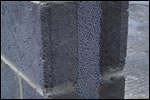
The government's cuts to its Better Energy grants will cost jobs and make it extremely difficult for Ireland to meet its retrofit and energy reduction targets, green building magazine Construct Ireland has warned.
Following the budget, the Sustainable Energy Authority of Ireland reduced grants for cavity wall insulation from €320 to €350. Grants for internal and external wall insulation were also reduced — previously these were €2,000 and and €4,000 respectively, but now separate rates have been introduced for different house types, with the maximum being €1,800 for internal insulation and €3,600 for external.
Green groups criticse new EU energy efficiency plan

Environmental groups have criticised the EU's new Energy Efficiency Directive for failing to mandate member states to make big energy savings over the next decade.
According to the European Commission, the plan will deliver 20% energy savings across the union by 2020. However, Friends of the Earth said the directive would "not make savings to the extent promised, or on the scale needed to fight climate change".
Six-week consultation on green public procurement launched

The government has published its draft national action plan on green public procurement (GPP). Environment minister Phil Hogan said the plan, when finalised later this year, will apply to all personnel involved in procurement across the public sector.
The plan aims to ensure the government purchases sustainable products and services in areas such as construction, energy, food and transport.
Grants for heat pumps and biomass boilers withdrawn
The government is withdrawing grant support for heat pumps and biomass boilers and reducing grants for other energy efficiency upgrades as part of its new Better Energy national building upgrade programme. The government has allocated an additional €30m to the programme this year in addition to the €60m set aside in this year's budget. It expects the extra funding to support an additional 2,000 jobs in the retrofit sector in 2011.

